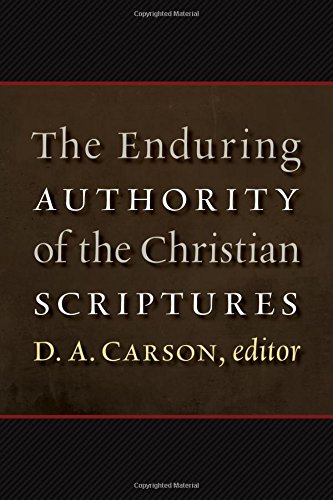A Brief Book Summary from Books At a Glance
Editor’s Note: Today we continue our series of “bonus” summaries covering all thirty-six chapters of the monumental volume, The Enduring Authority of the Christian Scriptures (D.A. Carson, ed.).
Chapter 10: Roman Catholic Views of Biblical Authority from the Late Nineteenth Century to the Present
by Anthony N. S. Lane
(Summarized by Mark Coppenger)
Lane builds this chapter around a succession of Catholic documents addressing scripture: The Council of Trent (1546), which declared the Vulgate authoritative and the Apocrypha canonical, and which, under the subsequent catechetical work of Peter Canisius, was taken to place tradition alongside the text as a source of revelation; the First Vatican Council (1870), which pushed back against incipient modernism, affirming God as the author of the Bible; Leo XIII’s Providentissimus Deus (1893), which was a firm rejection of “higher criticism,” declaring, “Those who maintain that an error is possible in any genuine passage of the sacred writings, either pervert the Catholic notion of inspiration, or make God the author of such error”; Benedict XV’s Spiritus Paraclitus (1920), which continued to affirm the Bible’s “immunity from error or deception,” and which explored the nature of the human contribution, whereby the writers were said to have enjoyed “full freedom under the Divine afflatus, each of them in accordance with his individual nature and character”; Pius XII’s Divino afflante Spiritu (1943), which continued to dismiss those who would limit biblical authority to matters of faith and practice, but opened the door to deeper biblical study, wherein scholars could consult. . .
[To continue reading this summary, please see below....]The remainder of this article is premium content. Become a member to continue reading.
Already have an account? Sign In
